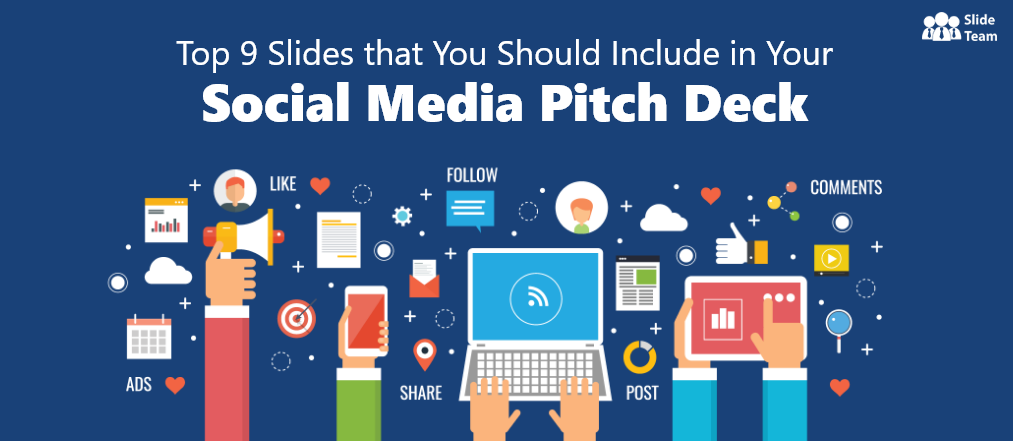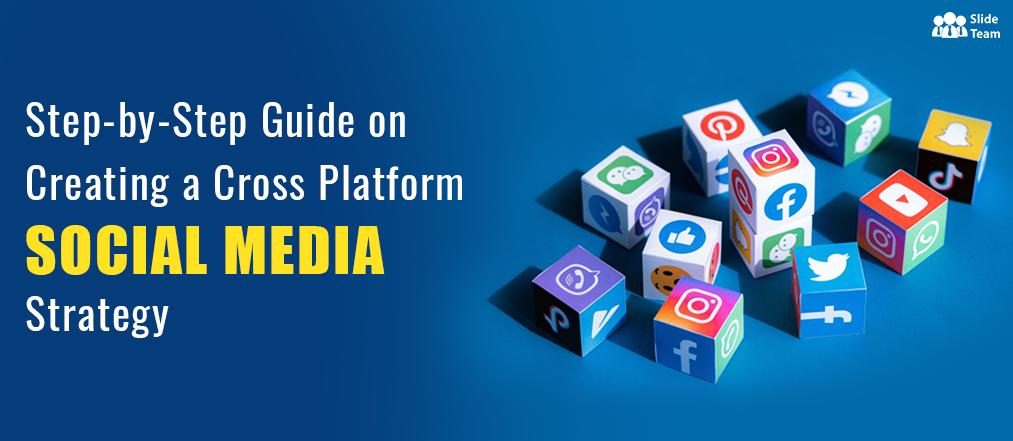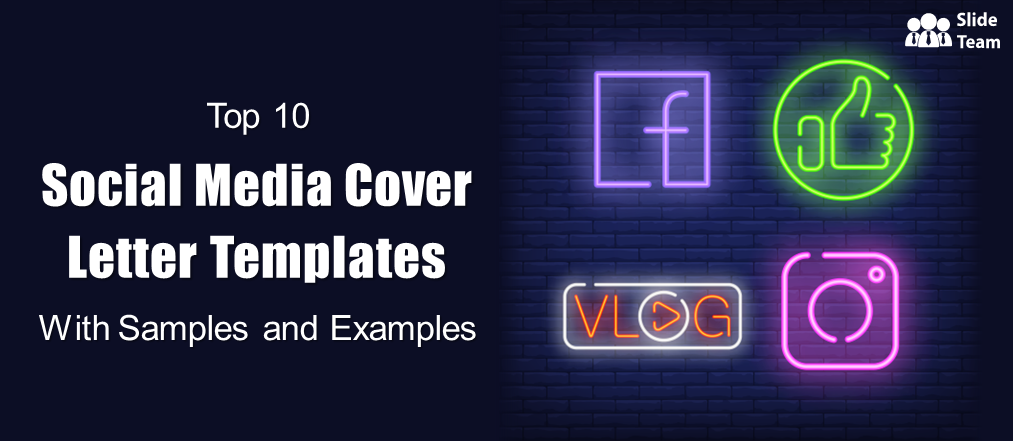Gone are the days of traditional marketing channels: Banners, TV and Radio commercials, newspaper articles, etc. As people spend more in virtual worlds or on screen-scrolling, businesses have to invest more to be where the customer is. The success of projects like Meta and VR game tech confirms that. Statistics also prove that social media plays a vital role in controlling the marketing, business, and advertising world. For instance, in 2022, influencing marketing was worth $16.4 billion and was growing at an annual Compounded Annual Growth Rate (CAGR) of 18%. Eight out of 10 people between 13-38 years of age want to become social media influencers/creators, and four of these see it as a high-income generating business.
A survey by Statista, an online platform specialized in the market and consumer data, shows that 9 of 10 people in the US use a social media platform. The same survey report shows that six of 10 marketing professionals see social media as an important platform/tool for their business growth.
Using social media platforms as entertainment and communication methods is easy, but harnessing these as marketing tools is complicated. The good thing is that social media platforms want to help businesses, so they offer professional dashboards and Analytics.
Social Media Analytics: A Reflection of Your Brand
Each social media platform offers value to your business and needs special marketing efforts/strategies. Social media analytics helps collect, measure, and analyze data and gain insights into product/service/brand perception. With analytics data, you can develop informed and effective social media marketing strategies and create a positive brand presence.
Analytics is an integral part of social media marketing, reports, strategy development, implementation, improvement, and detailed analysis. It helps managers present their actions (backed with data) and track significant conversions and the impacts of those actions. Using the right set of analytics is necessary for exponential business growth.
Social Media Analytics Templates
Presenting social media analytics data in a professional and understandable manner helps campaign managers (and their teams) be recognized for their efforts and secure/expand the budget. Our social media analytics templates are ideal for recording and showcasing data in an eye-catching manner. The 100% customizable nature of our templates provides you with the desired flexibility to edit your presentations. These content-ready social media PowerPoint slides give you the much-needed structure for your campaign data presentation.
Let’s explore these expert-designed social media analytics templates that support your modern advertising!
Bonus: Social Media Playbook PowerPoint Presentation Deck
This playbook presentation deck outlines consistent guidelines for the marketing team for flawless execution of social media strategies and achieving their goals. It covers process workflows, standard operating procedures (SOPs), and cultural values that shape a consistent response. Use this PowerPoint Playbook to guide your team on resources and best practices to follow for business usage of social media. It will help you gain visibility and share of voice, find ways of interacting with the audiences, increase traffic, and generate connections, maximizing efficiency regarding online promotion and content, providing examples and best practice recommendations. Download it now!
1. Social Media KPI Analytics Measurement Presentation Template
With the right social media analytics, you will identify your target audience, demographics, and interests, which, in turn, inform your content strategy and improve engagement. This presentation template will provide KPIs and a format to record results. It will help you describe improvement measures for each value-adding social media analytics. Get it now!
2. Social Media Marketing Analytics Framework Template
One efficient way to measure the performance of marketing campaigns and get insights into customer behavior is social media analytics. It will help you find the most effective tactics. This template allows you to present social media analytics quantitative data in an easy manner. It has pre-built eye-catching columns with platform logos to present numbers and a graph to share and compare campaign statistics. Grab it today!
3. Social Media Analytics Template for Digital Marketing Report
Brand sentiment is one important but often neglected aspect of social media marketing. Implementing analytics will ensure your team gets this and monitor (indirect) customer complaints and feedback on social media channels. This template is a comprehensive analytics dashboard that exhibits and compares data across social media platforms like Facebook, Instagram, Twitter, and YouTube. It will help you record and share the targeted and actual values like followers, impressions, links clicked, engagement rate, total engagements, average order value, and average conversion time for each platform. Download it now!
4. Social Media Analytics Dashboard Template for Influencer Marketing
In the short term, getting your brand associated with celebrities is one way to make it popular and accepted. Influencers play the same role in social media marketing. A point of caution while adopting influencer marketing is choosing the right influencer that compliments your brand. Promoting technology with the help of food/fitness influencers is not a good idea. This template provides a dashboard to track and analyze your influencer marketing statistics and their impact on your brand reputation across platforms. Download it now!
5. Social Media Analytics Template for Engagement Assessment
Which channel plays a crucial role and drives the most traffic/sales for your brand, and which is least profitable is easy to answer with analytics data. Understand the engagement and ROI of each channel with the help of this presentation template. It provides you with one place to consolidate and present engagement data like followers, subscribers, last 30 days’ trends, re-tweets, page impressions, page likes, and shares, again across platforms. Download it now!
6. Big Data And Social Media Analytics PowerPoint Template
With the help of analytics, you can assess social media platform trends that help you optimize efforts and resources. Take advantage of this template to present statistics related to each forum. It will help you illustrate the significance of social media platforms in terms of numbers like data consumed, regular uploads/downloads, orders, files shared, hours spent, etc. Grab it today!
7. Social Media Analytics Tools Assessment Template for Digital Marketers
Identifying the most effective tactics/tools and allocating budget and resources will help companies improve their ROI on their social media marketing. This template will help you share the list of the most popular social media marketing software/tools available in the market, along with a description of their functions, USPs, or market impacts. It also has a column to share their purchase/subscription cost. Grab it today!
8. Social Media Marketing Analytics Framework Presentation Template
Reading analytics data helps social media marketing teams understand the customers’ emotions and needs. Using these results, businesses can design a service improvement and satisfaction strategy that includes social media channels. This template is a comprehensive framework containing an overarching strategy, tactics, measurement plan, analytics, and optimization opportunities for social media marketing. It will help you implement programs, campaigns, and product-specific promotions to great effect. Get it now!
9. Three-Staged Social Media Analytics Implementation Process Template
This template will help you explain the three stages of social media analytics implementation to your team. It allows you to define the key purpose and steps of the data capture process — collecting pre-processed data from platforms. You will be able to share the data understanding or organization process that includes removing unnecessary data and performing advanced analytics. The last part of the strategy is presenting the data — summarizing and analyzing the findings. Grab it today!
10. Social Media Analytics Techniques Funnel Presentation Template
With the help of this template, present the customer number at stages of the social media analytics funnel. It will help you exhibit the journey of your social media channel visitors/followers in four parts of the funnel. Customers at the first stage or upper end of the funnel are aware of your brand. The second stage audience is active users, while the third one is frequent customers, which also signifies addictive. The fourth stage, or end of the funnel, is amplified users who promote your brand and are loyal advocates. Create a strategy to move the customers from the first to the last segment of the funnel in a quick and effective manner using this presentation template. Download it now!
The Last Post!
Social media analytics allows businesses and organizations to track and understand their online presence and engagement with their audience using simple metrics such as likes, shares, comments, impressions, etc. It provides businesses insight into which content and campaigns resonate with their audience and helps them make data-driven decisions to improve their marketing and communication strategies.
Our pre-designed social media analytics template will be your ideal partner(s) to gather and analyze valuable information about customer sentiment and feedback. Use these well-thought-out social media marketing PPT Designs to improve your business products, services, and marketing efforts for maximum customer satisfaction.
Download these easy-to-modify social media analytics templates and start your journey to understand the audience better and improve marketing efforts and clear communication!
FAQs on Social Media Analytics
1. How do I write a social media analytics report?
Writing a social media analytics report aims to present data in a clear, concise, and actionable way. It involves the following steps:
- Define report goals and objectives: It is important to have a clear understanding of what you want to accomplish with the report and who your audience is. What is your aim, or what do you want to do with the data you gather or present?
- Data gathering: Use tools such as built-in analytics on social media platforms or third-party analytics software to gather data on your social media performance. Useful social media metrics on which you can collect data include likes, shares, comments, reach, and engagement.
- Data analysis: Analyze the data to identify patterns and trends, e.g., which types of content get the most engagement or which days see the highest levels of engagement.
- Data visualization: Make your data more digestible and easy to understand using visual aids like charts, graphs, tables, dashboards, PPT templates, etc.
- Reporting: Use the insights gained from your data analysis to write a report summarizing your findings and making recommendations for improving your social media performance. Be sure to include key metrics and visualizations to support your analysis.
- Share and act on the report: Share your report with stakeholders and improve your social media strategy using its insights.
2. What is included in social media analytics?
Social media analytics includes metrics that measure the performance and engagement of a business or organization’s social media presence. These metrics include, but are not limited to:
- Reach: The number of people who have seen a piece of content or a post on social media.
- Impressions: The number of times a piece of content or post has been displayed on social media.
- Engagement: It measures how actively users interact with social media content, and it is analyzed with the help of other metrics such as likes, comments, shares, and clicks.
- Audience demographics: Information about the age, gender, location, and interests of your business’s social media followers.
- Traffic: The number of website visitors from social media.
- Sentiment: Analysis of customer feedback to identify the overall tone of the feedback, positive, negative, or neutral.
- Lead generation: The number of potential customers from social media, such as email sign-ups or contact form submissions.
- ROI: Measures the financial return on a business’s social media investments and efforts.
- Depending on the business or organization’s goals and objectives and the social media platforms they use, metrics may vary, and so may their business values or impacts.
3. What are the four KPIs for social media?
Key Performance Indicators (KPIs) are metrics used to measure the performance and success of a business’s social media campaigns/efforts. The KPIs will depend on business goals and objectives, but some of the most important and used KPIs for social media are:
- Engagement rate: This measures how active users interact with a business’s social media content. It is calculated by dividing the number of likes, comments, shares, and clicks by the number of followers or reach.
- Audience growth: This measures the growth of a business’s social media following over time and is tracked by comparing the number of followers.
- Website traffic: It measures the number of visitors a website receives from social media.
- Conversion rate: This measures the percentage of social media followers who take a specific action, such as making a purchase or signing up for a newsletter.


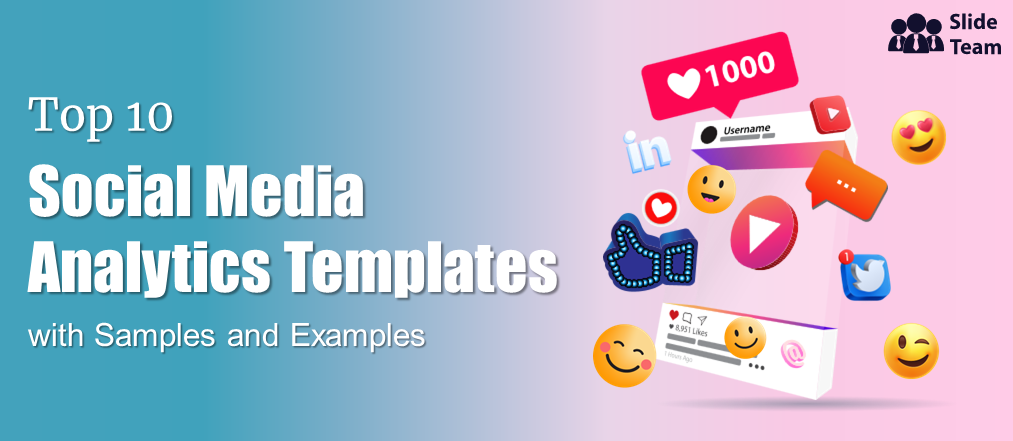
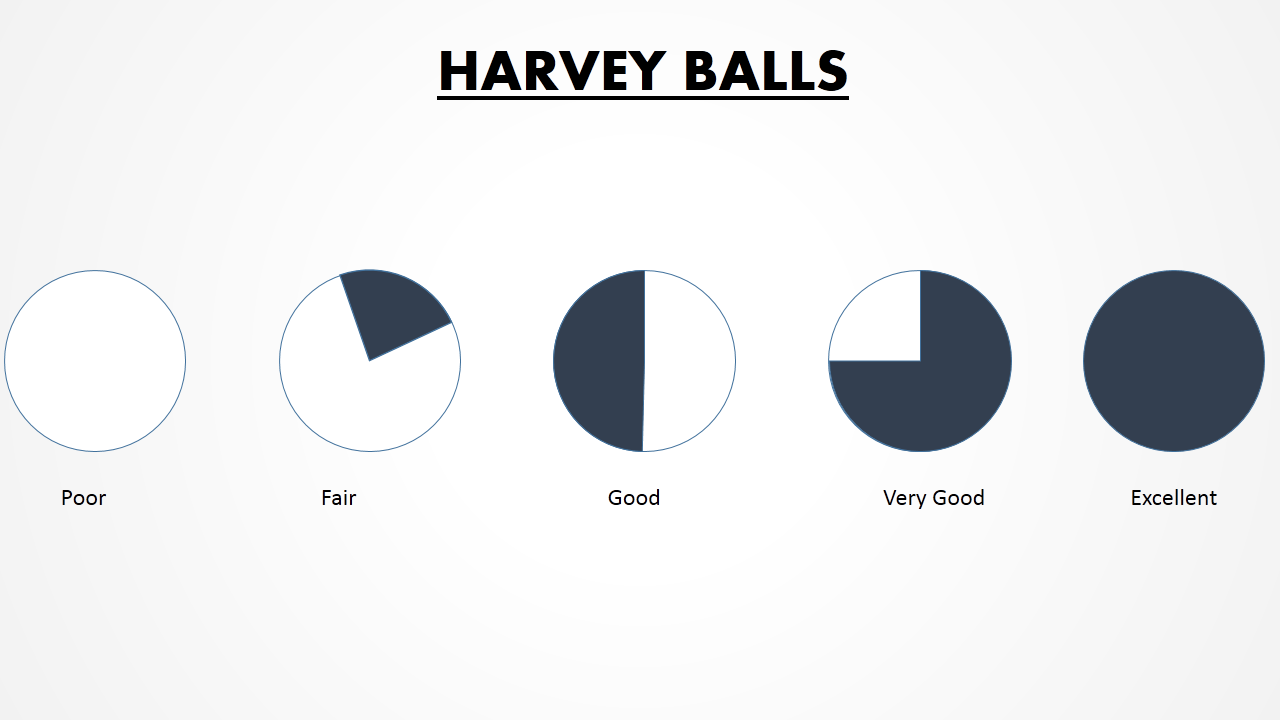

 Customer Reviews
Customer Reviews



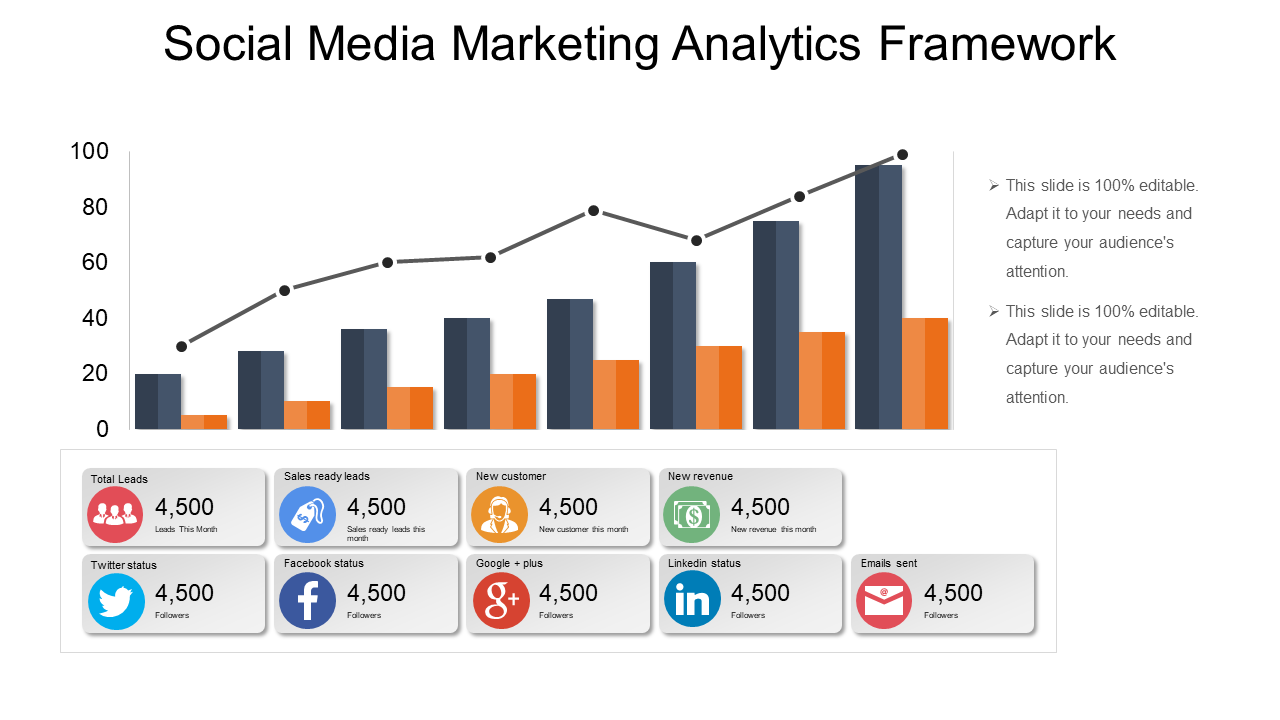
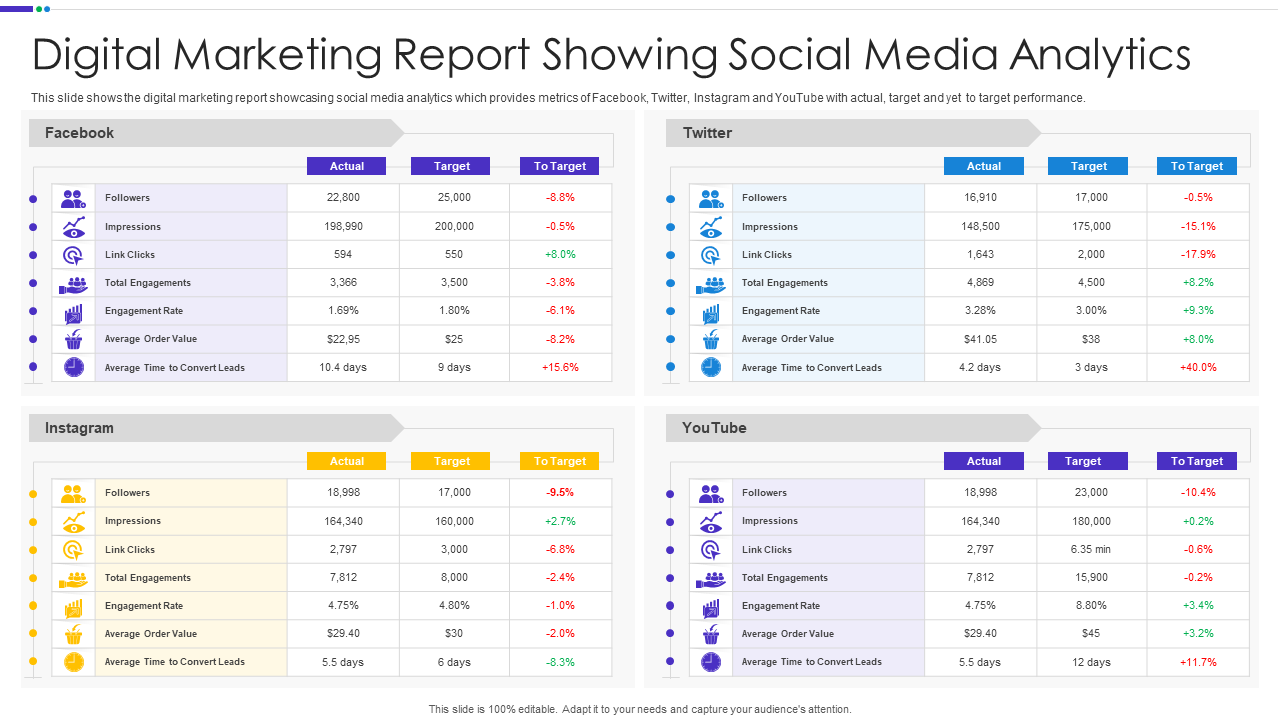
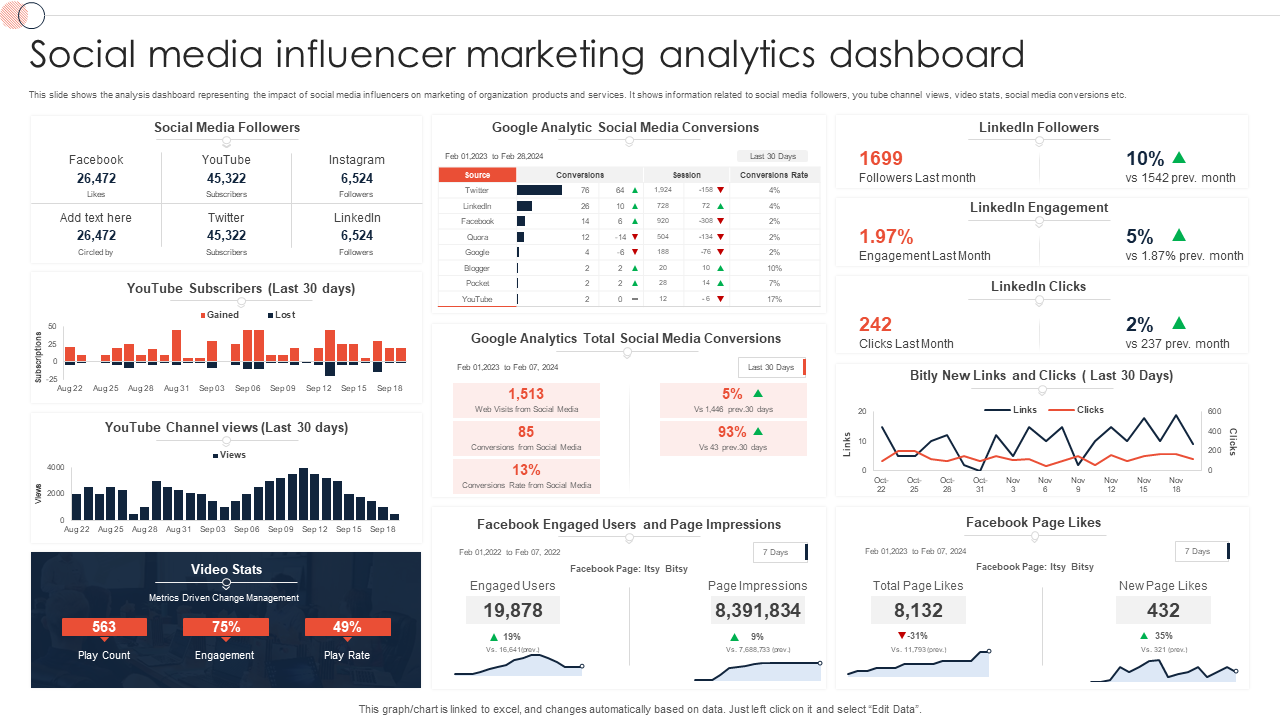
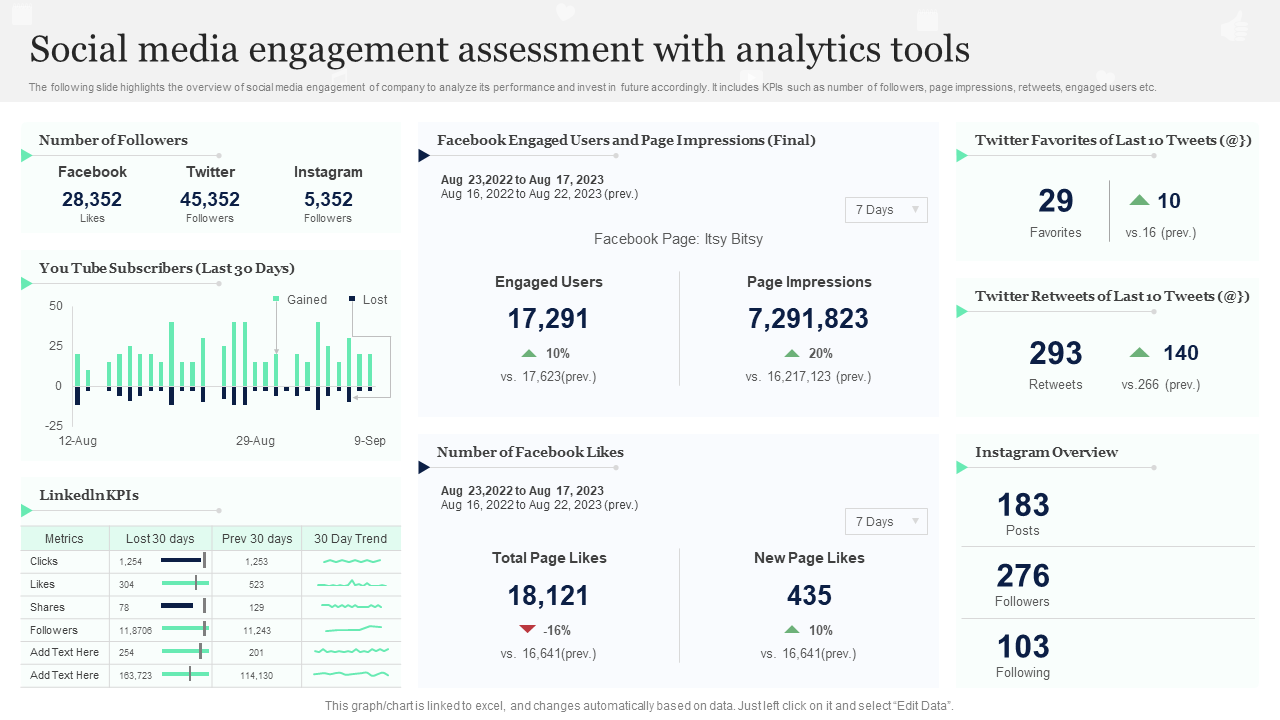
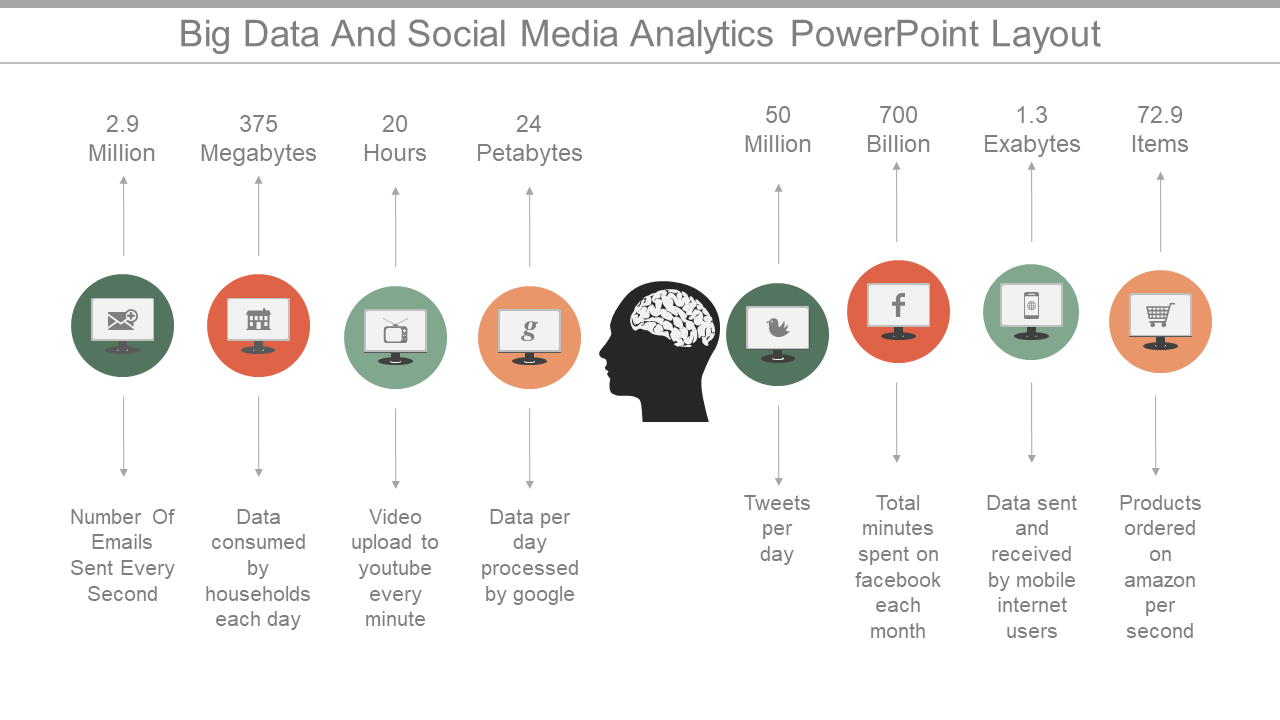

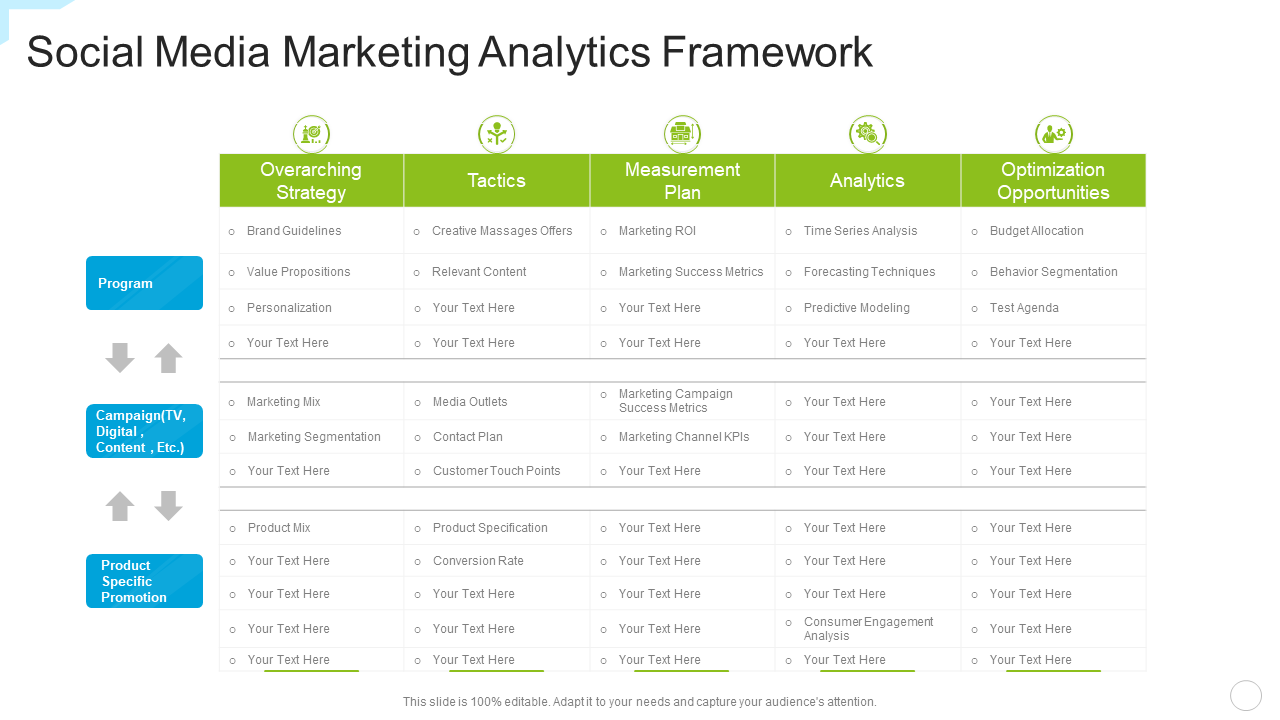
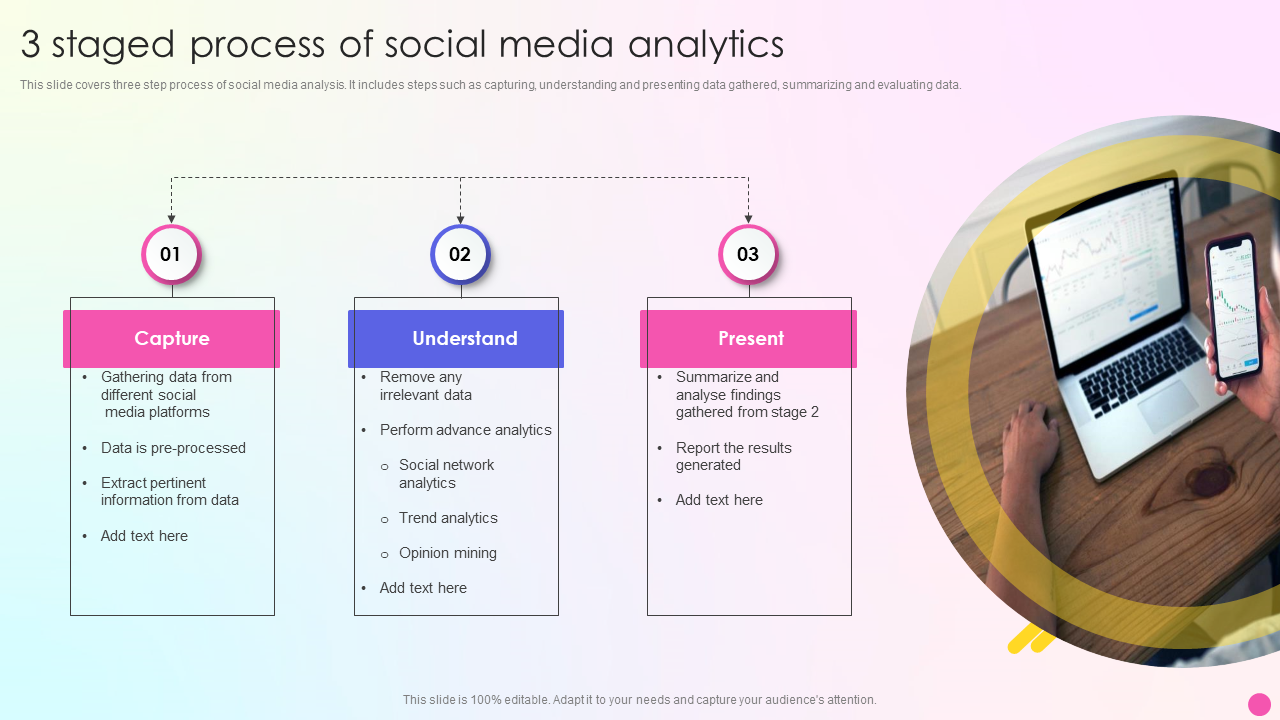
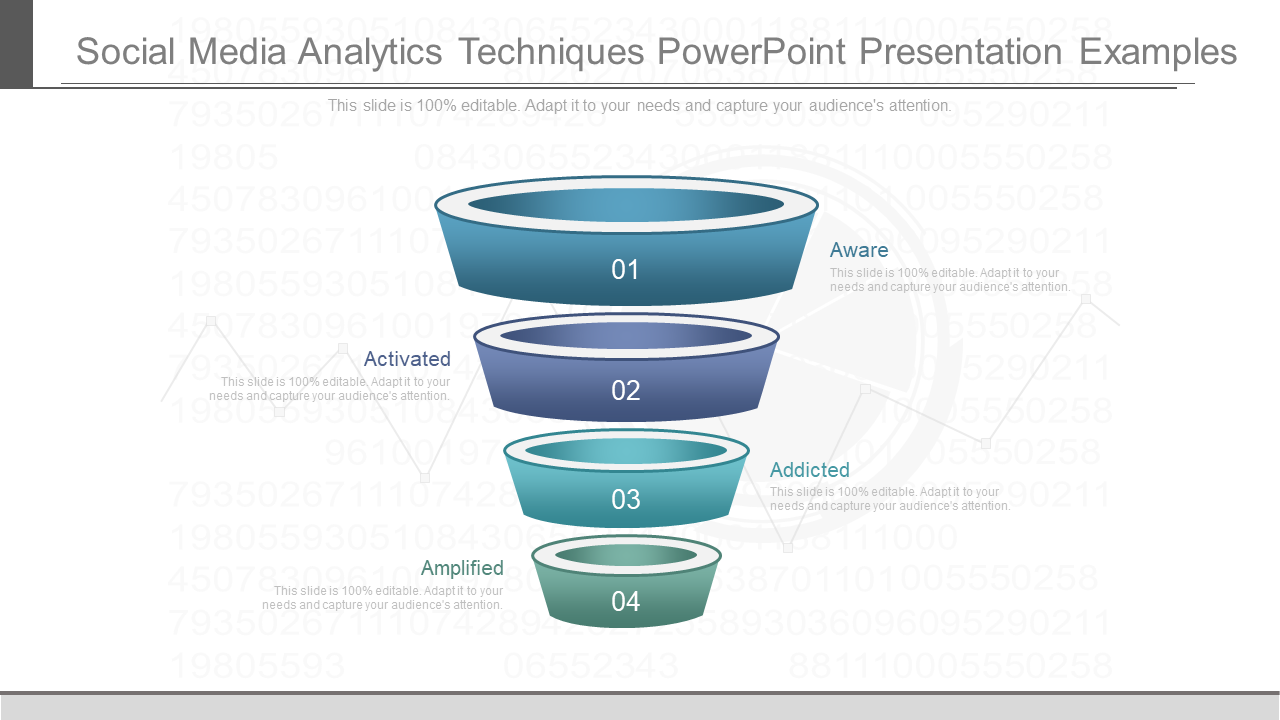




![What is a Social Media Playbook & How it can be Managed Using Various Tools [Free PDF Attached]](https://www.slideteam.net/wp/wp-content/uploads/2022/06/38-1013x441.png)
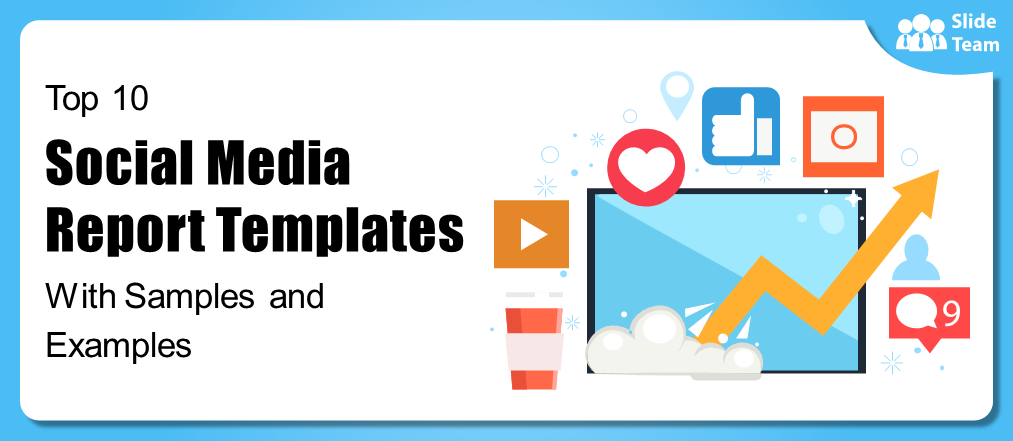

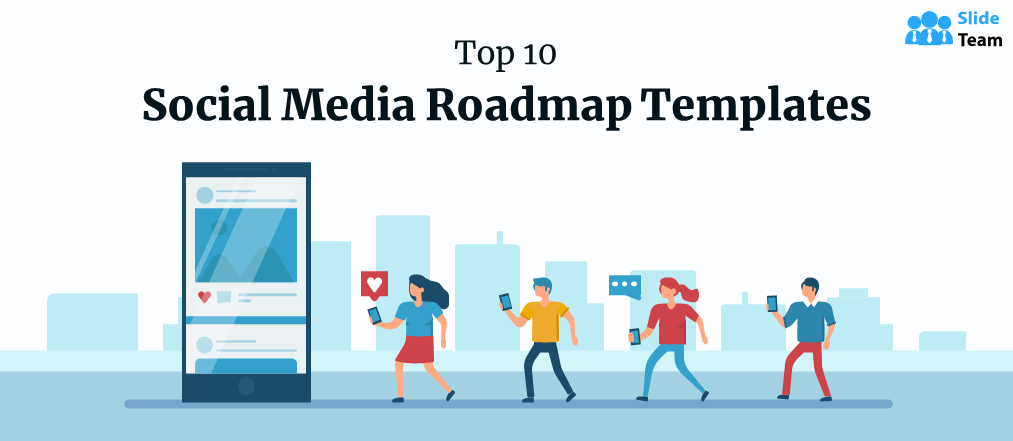
![Top 30 Social Media Calendar Templates to Humanize Your Brand [Free PDF Attached]](https://www.slideteam.net/wp/wp-content/uploads/2022/03/banner-7-1013x441.png)

![[Updated 2023] Top 20 Templates to Create a Profitable Social Media Toolkit](https://www.slideteam.net/wp/wp-content/uploads/2021/08/Banner_design_87b-1013x441.png)
